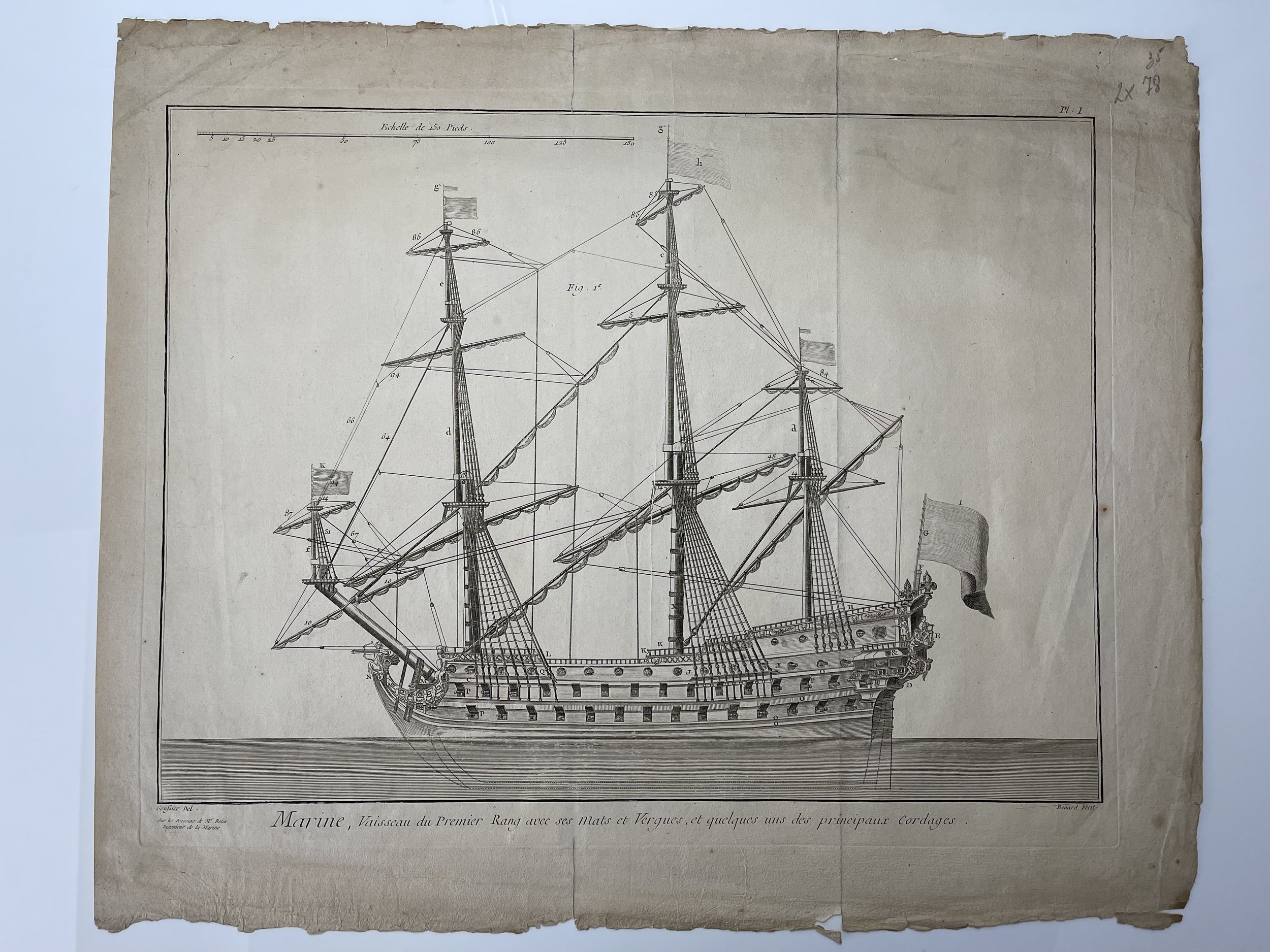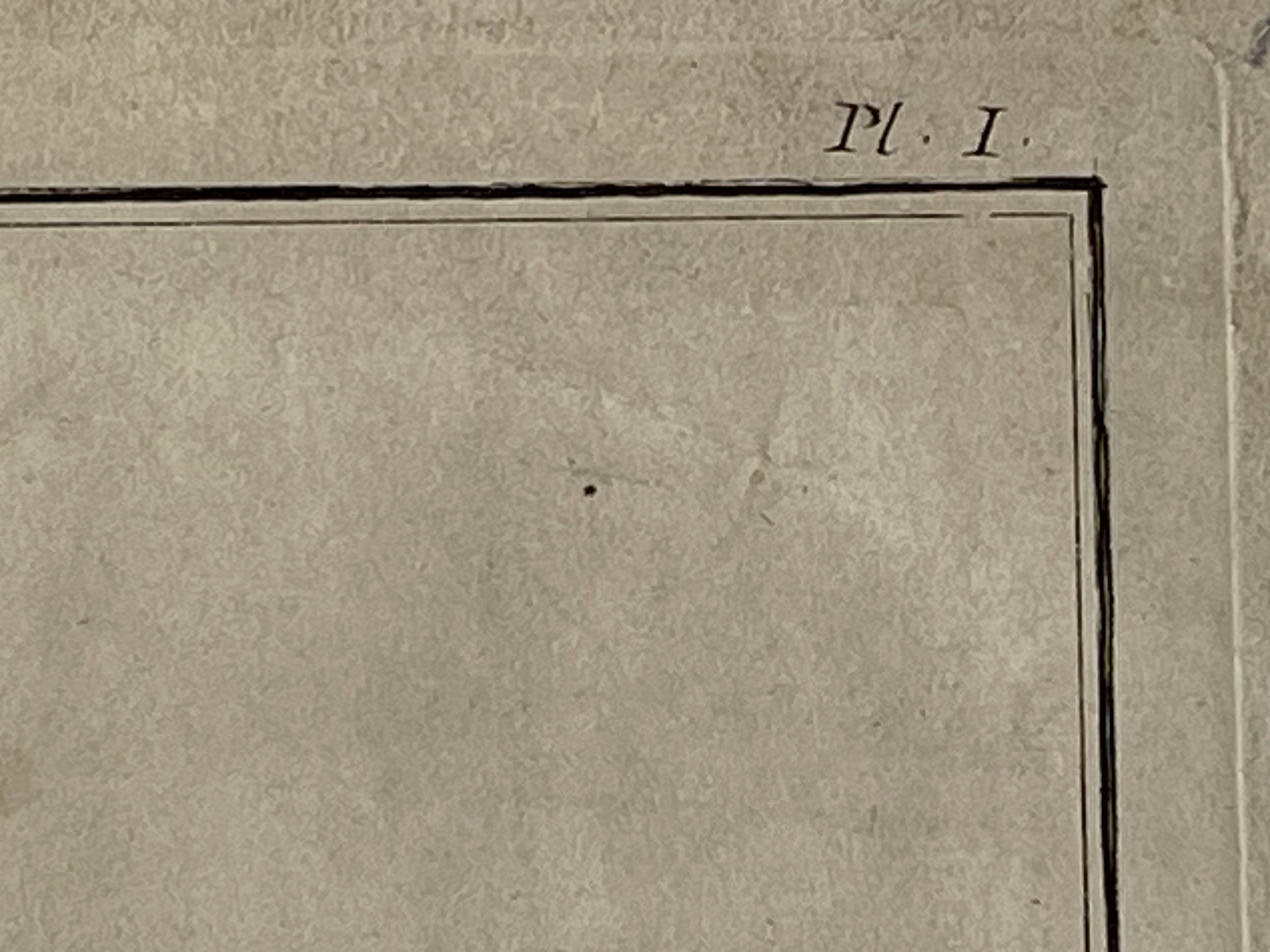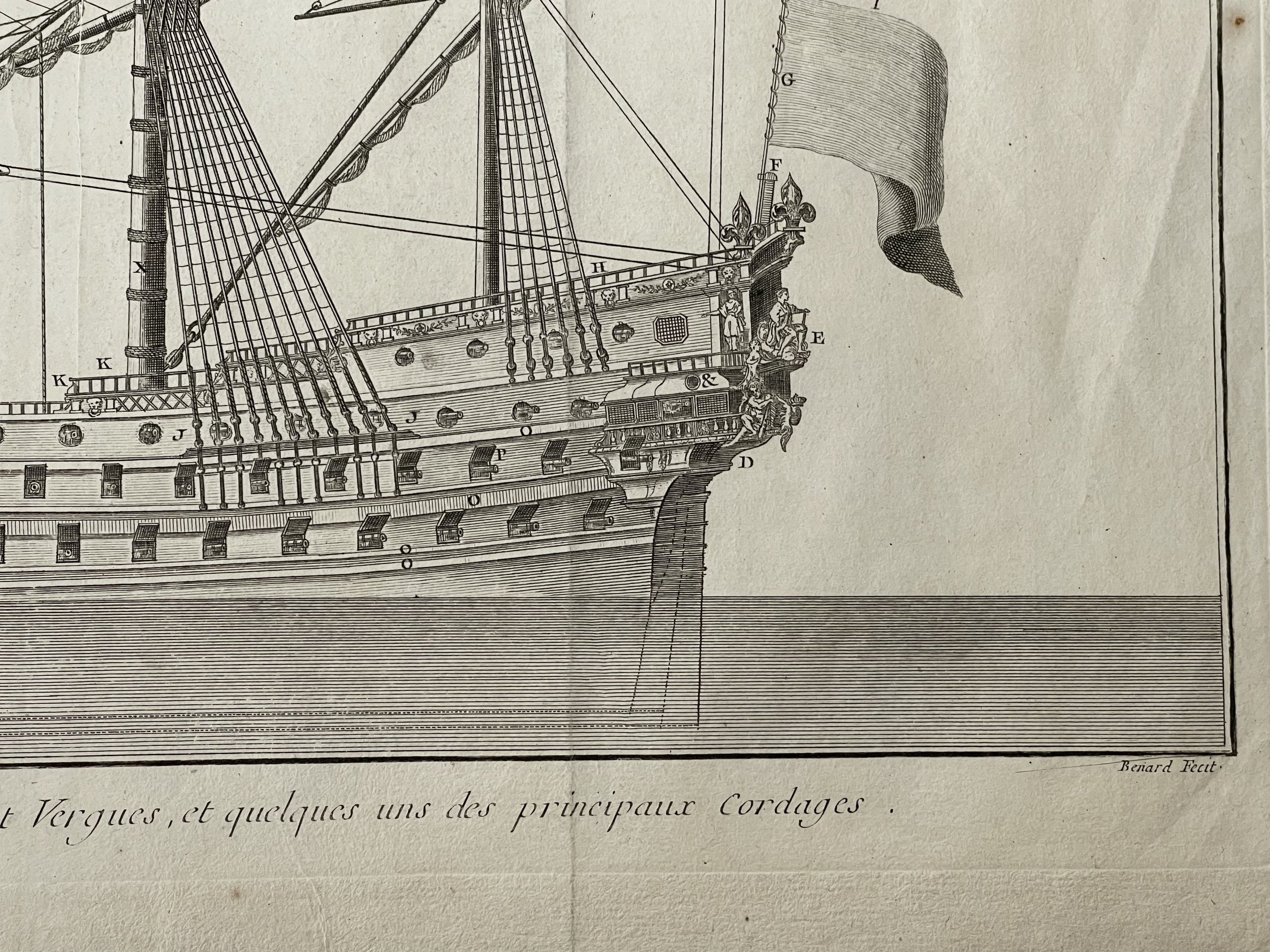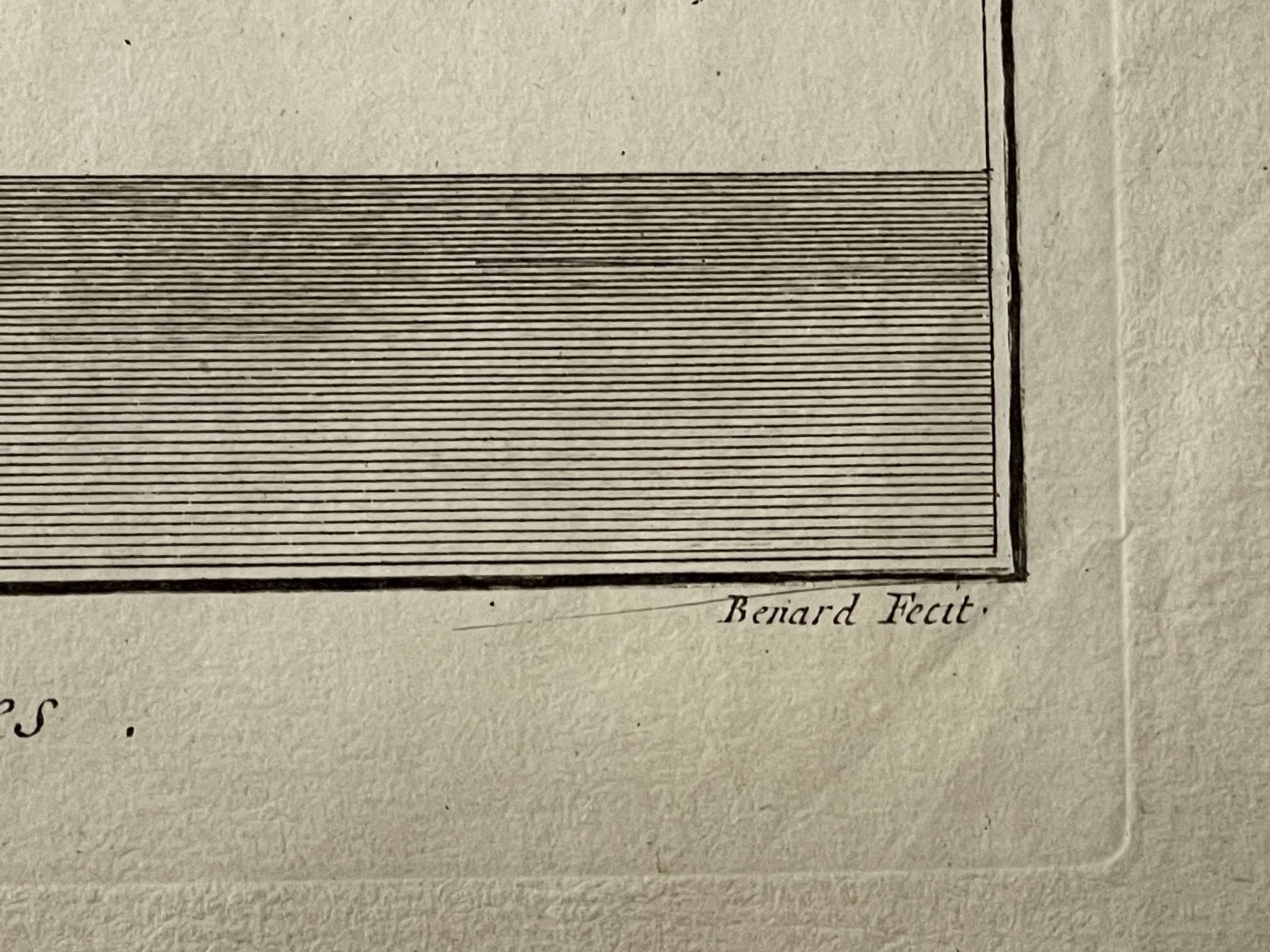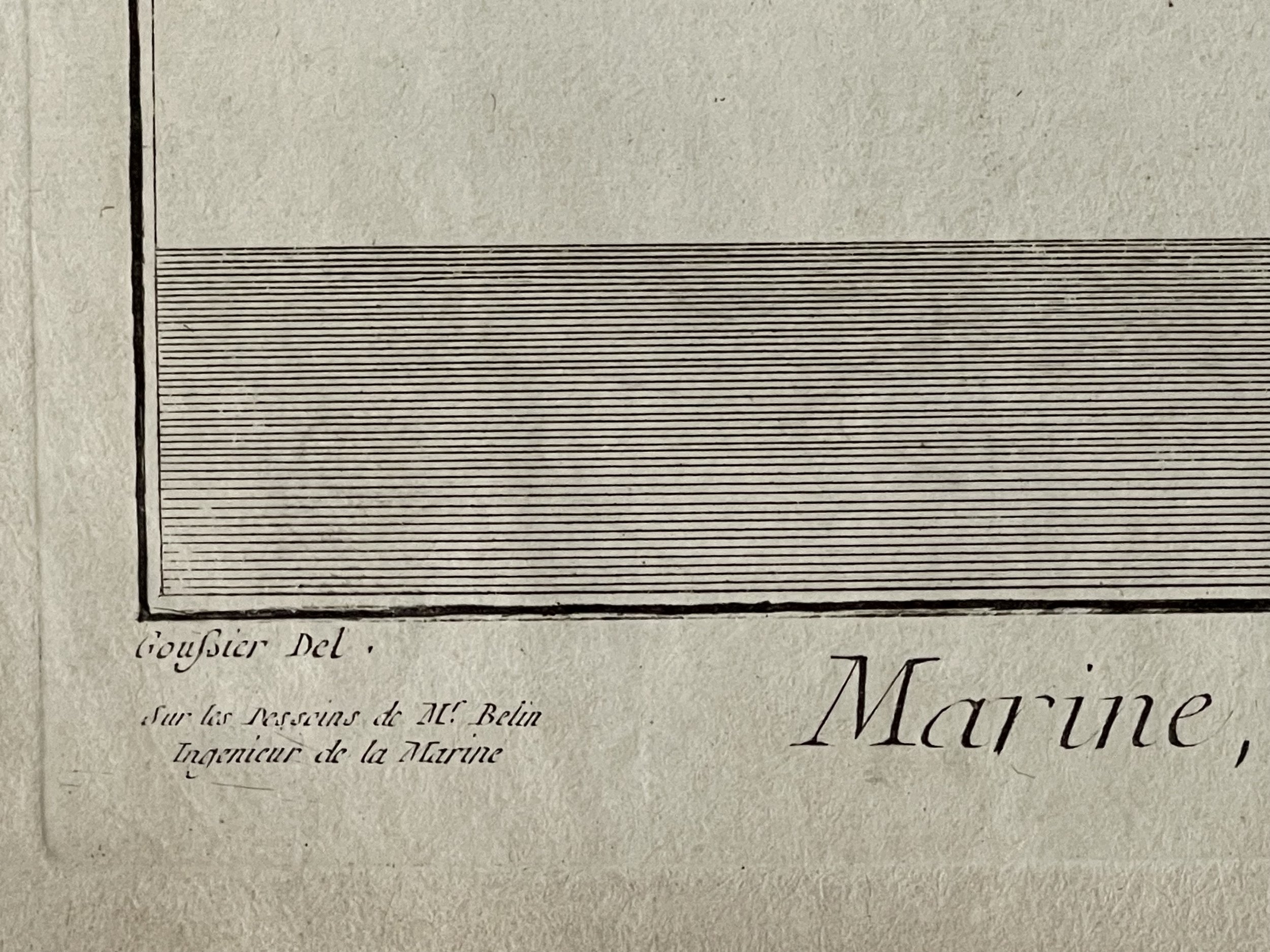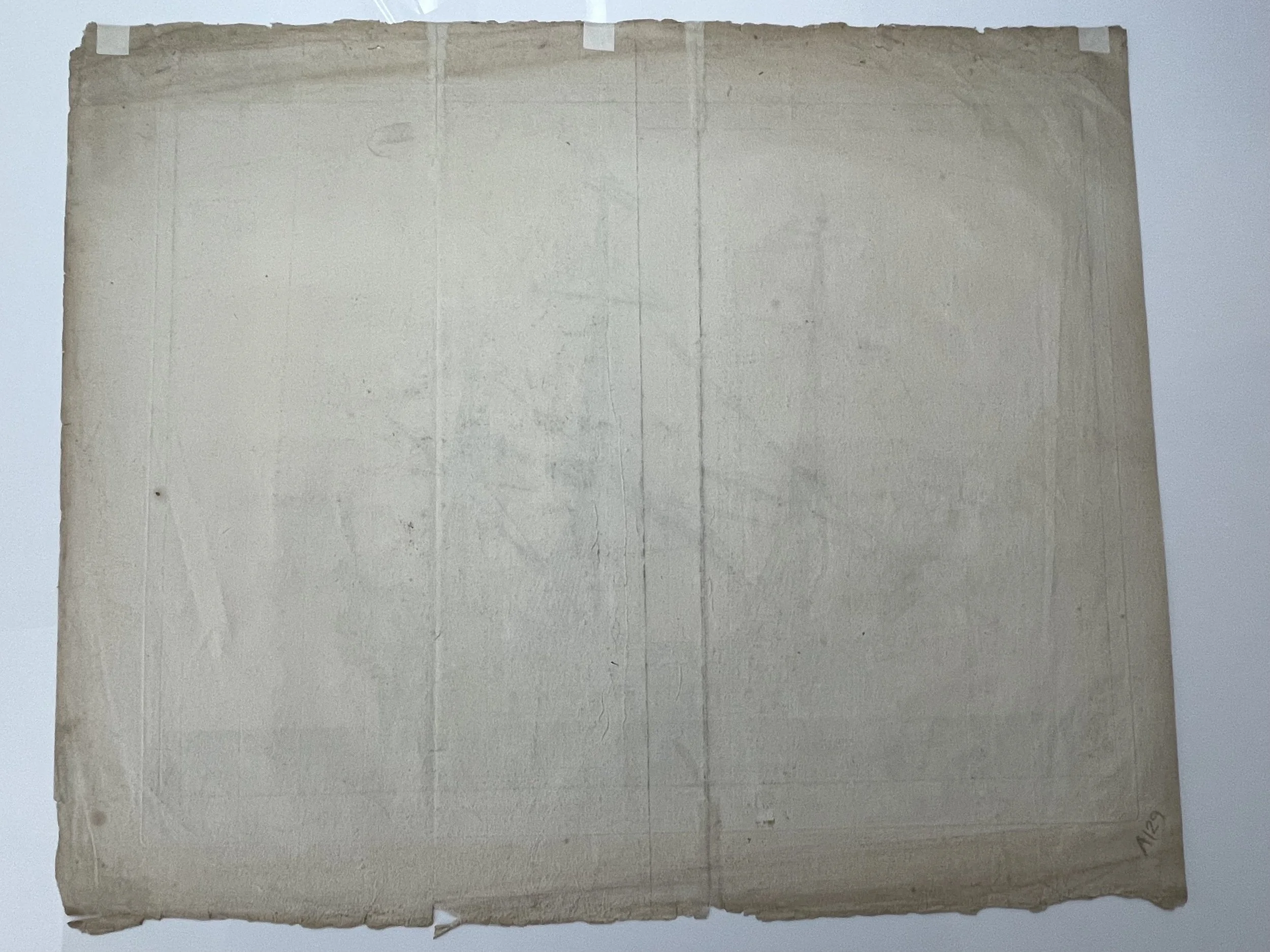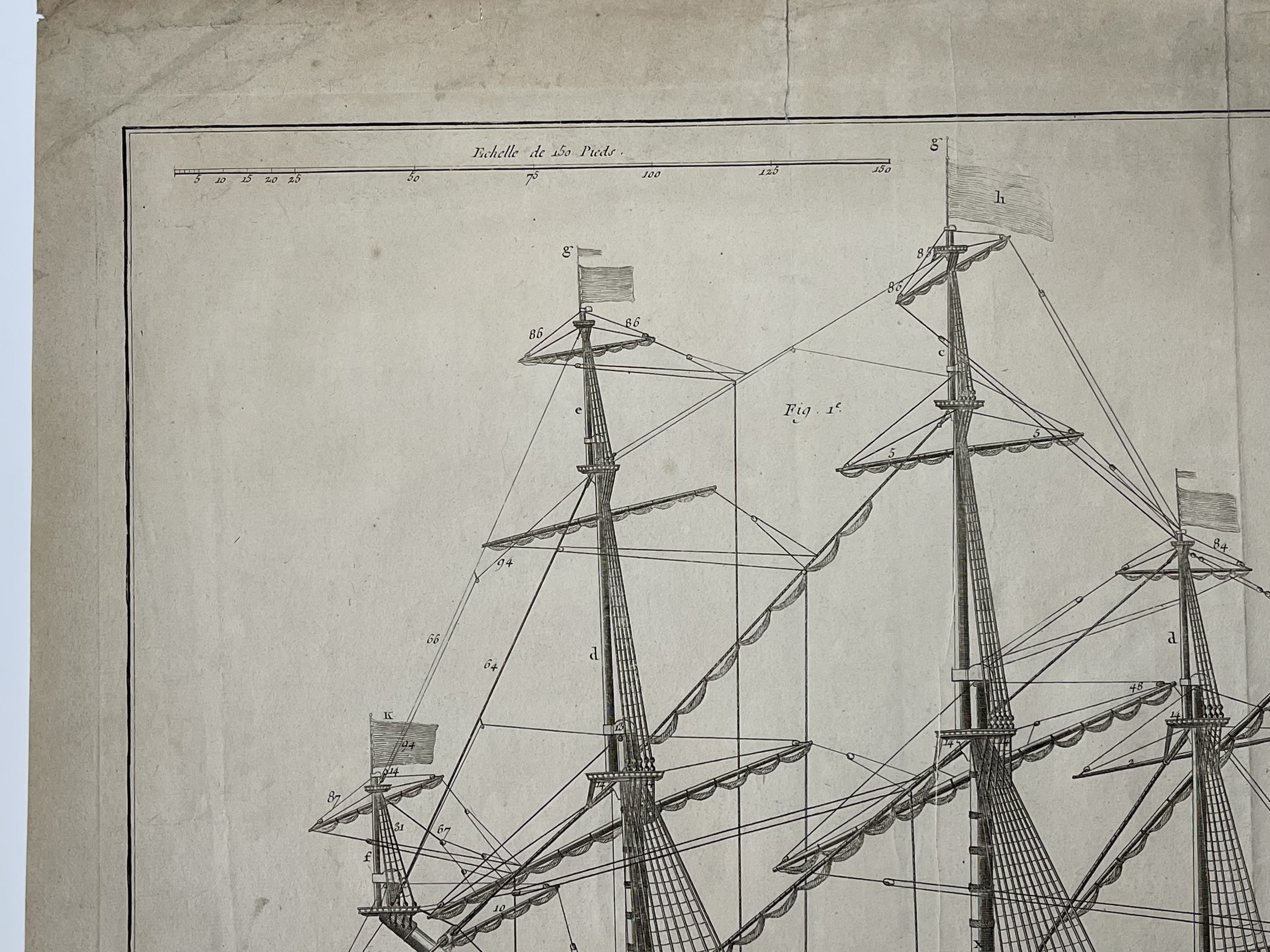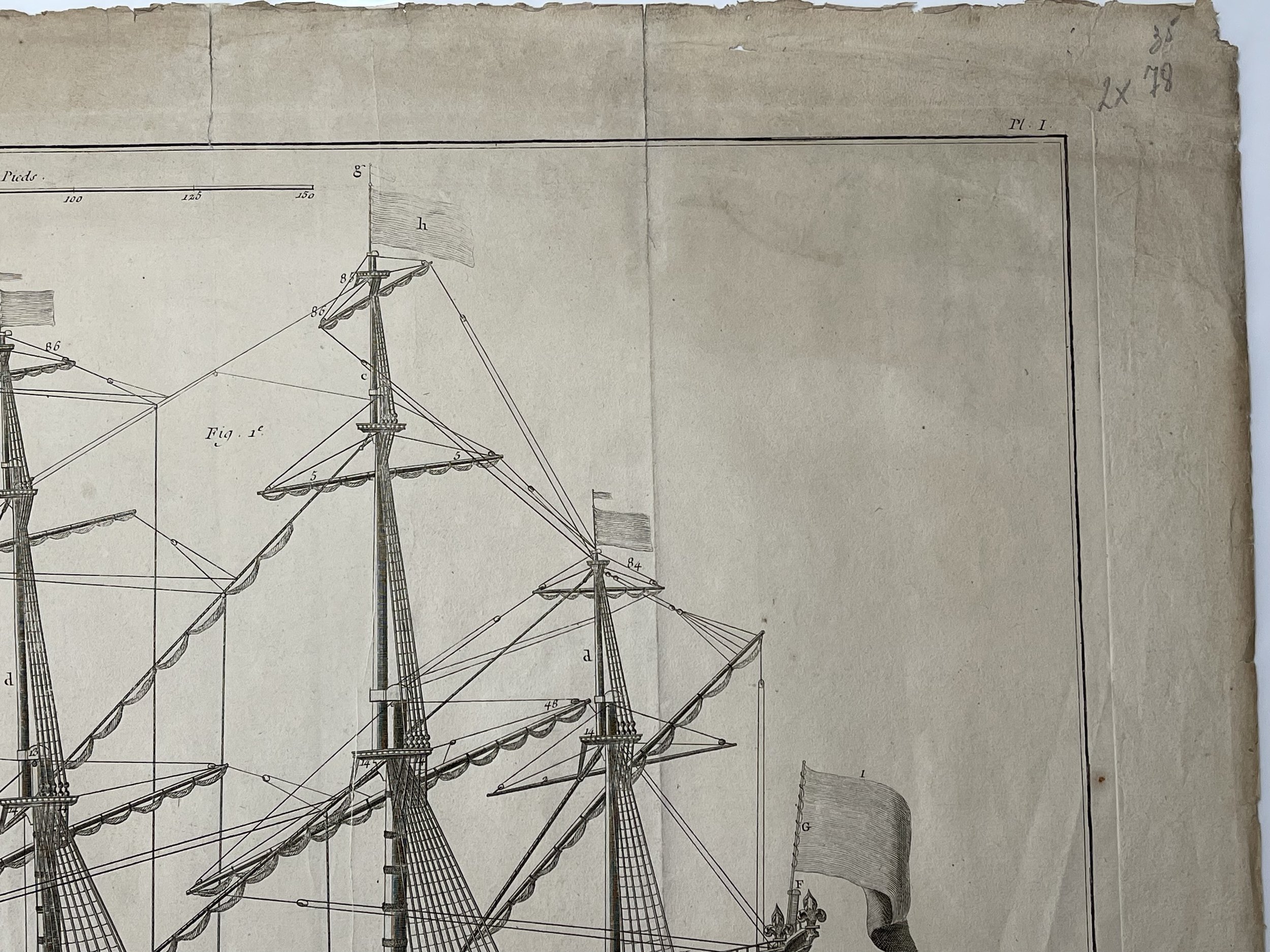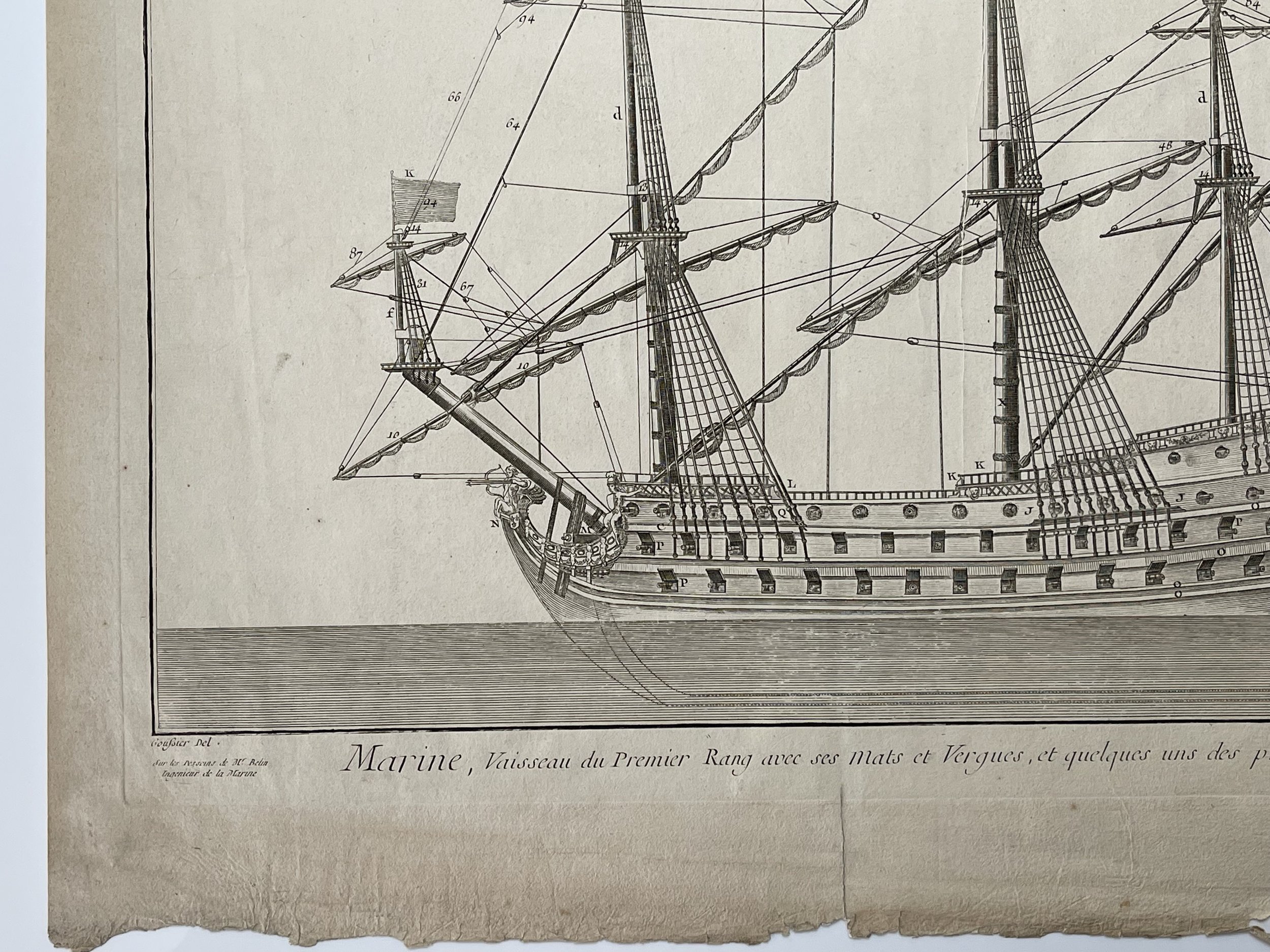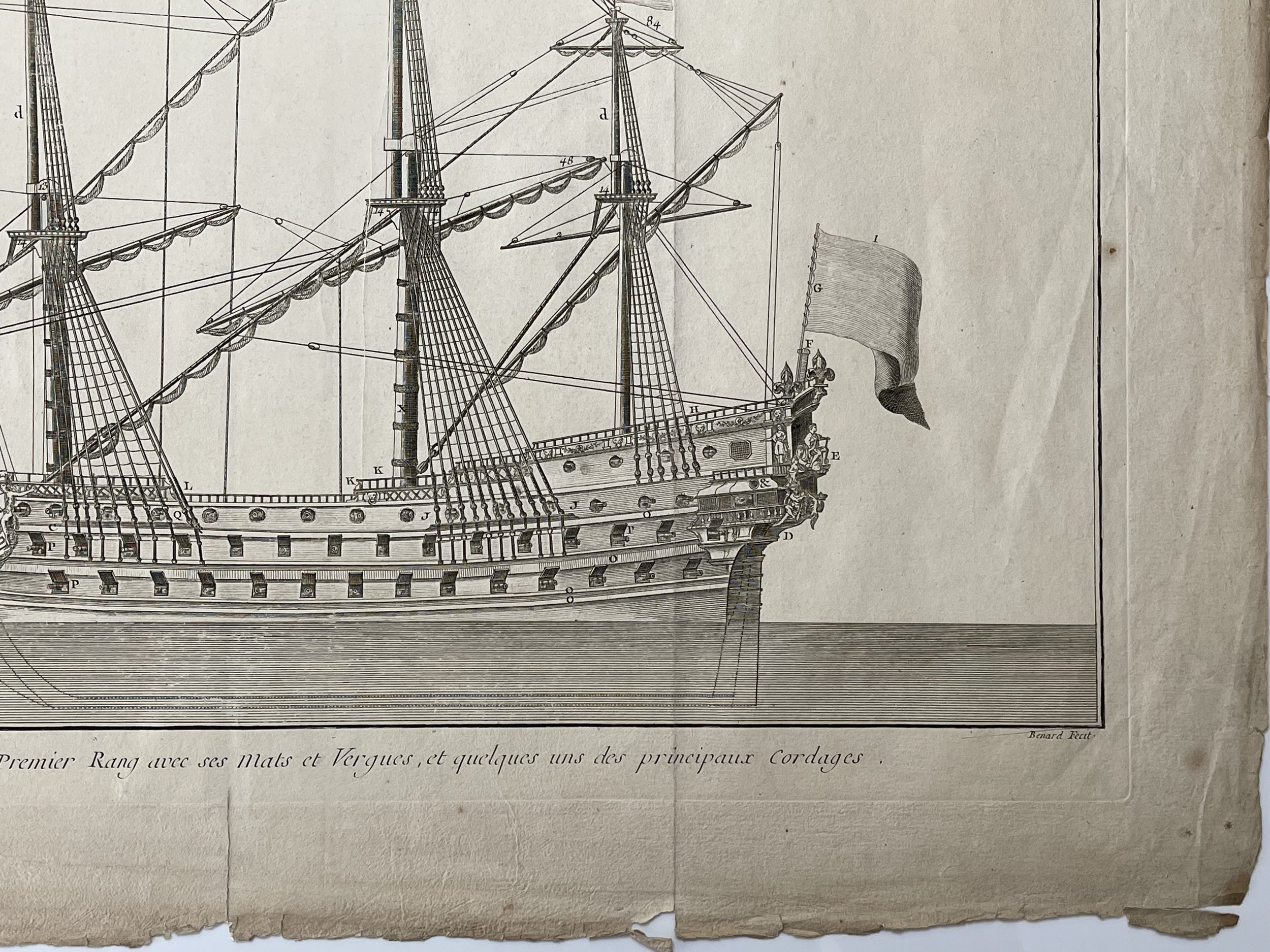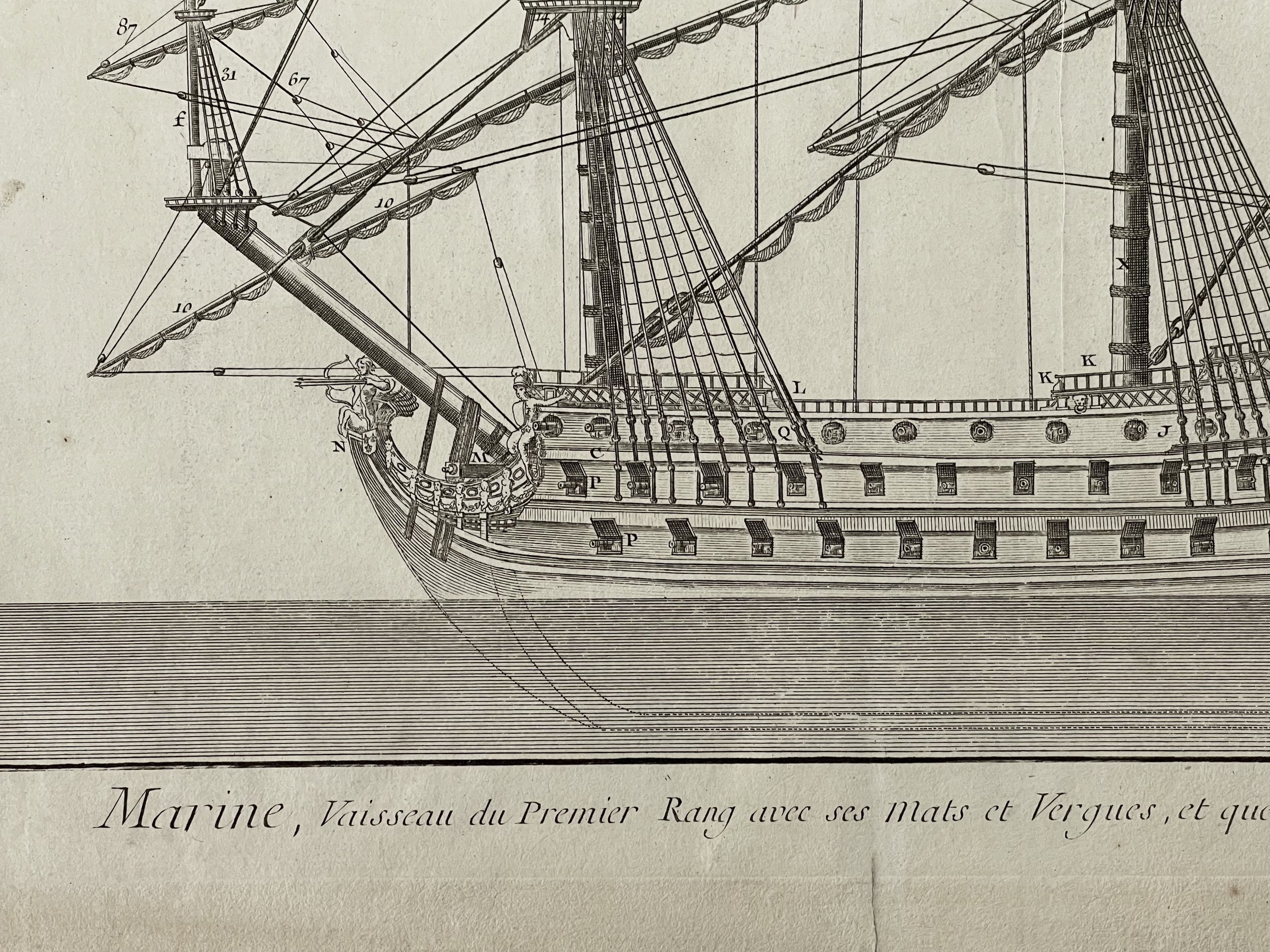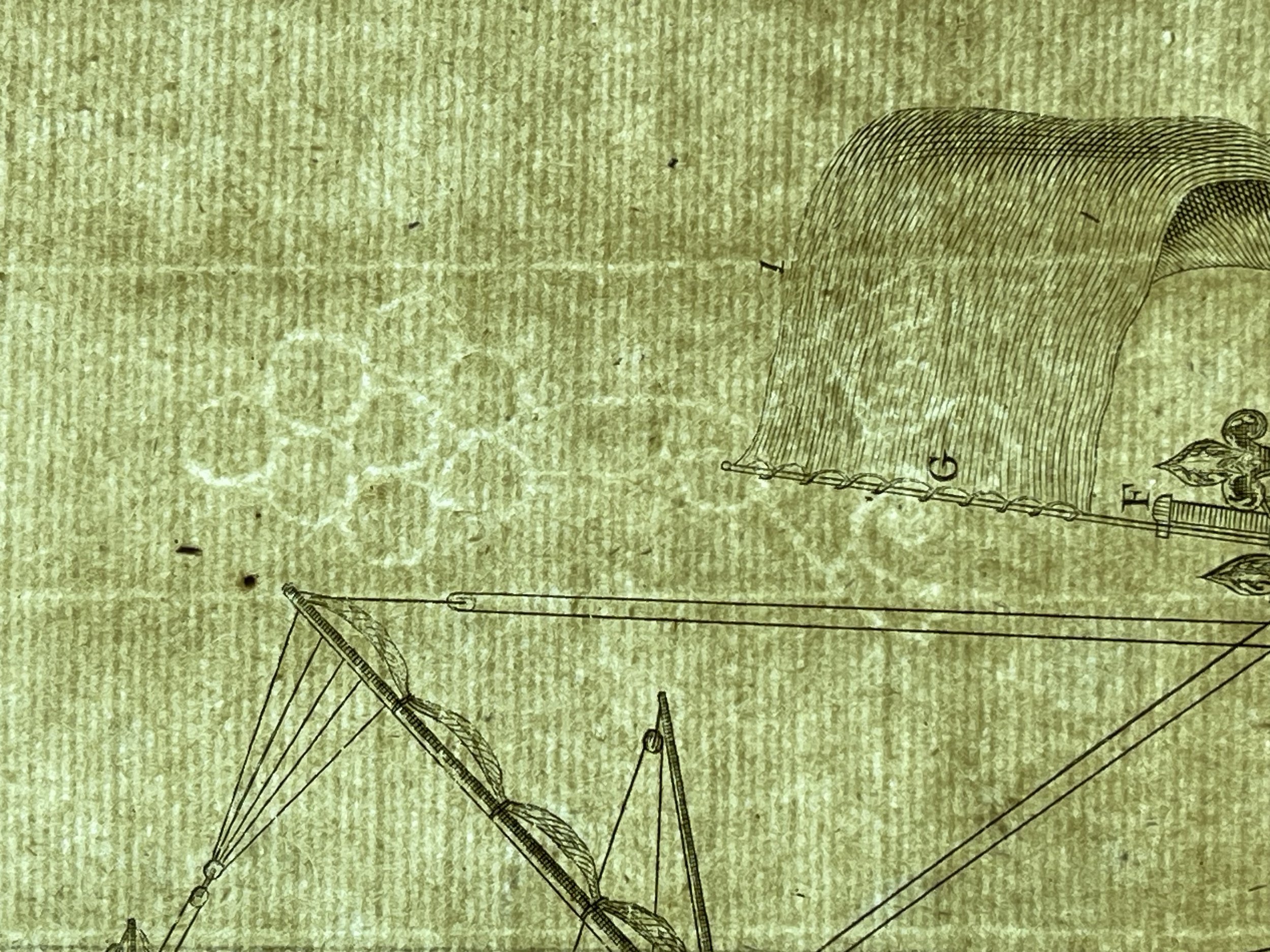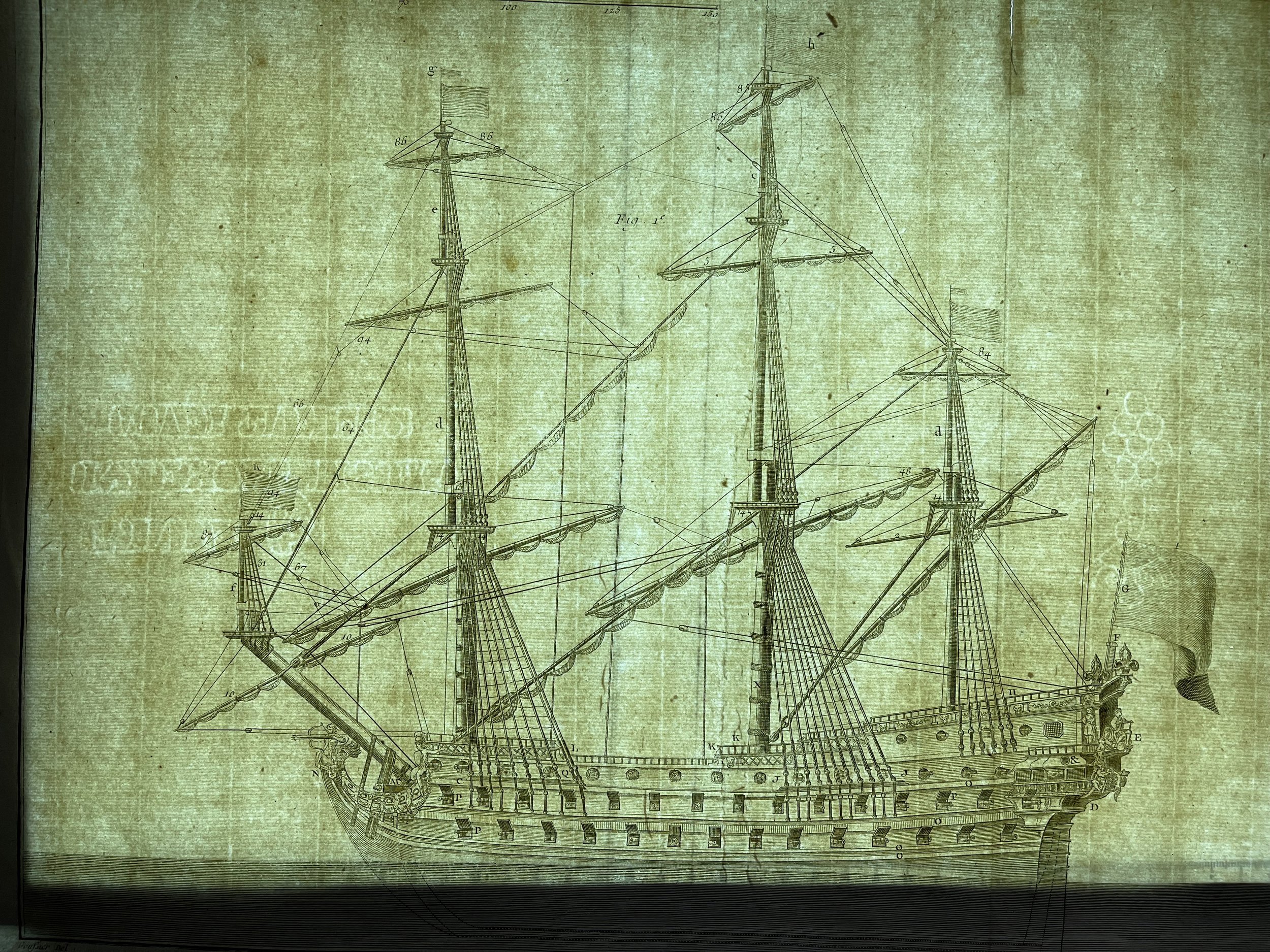Plate 1 - First Rate Ship With Its Masts and Yards, and Some of the Main Riggings - Denis Diderot / Jacques Renaud Benard - 1769
Plate I from the Universal Dictionary of Arts and Sciences ‘Marine’ : Sailing, First Rate Ship With Its Masts and Yards, and Some of the Main Riggings - 1769 - Light Box Watermarks shown.
Denis Diderot (5 October 1713 – 31 July 1784) - Was a French enlightenment era philosopher, publisher and writer. Diderot was born in the city of langres, France and educated at the lycée louis le grand where, in 1732, he earned a Master of Arts degree in philosophy. Diderot briefly considered careers in the clergy and in law, but in the end chose the more fiscally challenge course of a writer. Though well respected in philosophical circles Diderot was unable to obtain any of the government commissions that commonly supported his set and consequently spent much of his life in deep poverty. He is best known for his role in editing and producing the encyclopédie which was one of the most revolutionary and impressive works of its time.
Initially commissioned as a translation of Ephraim chambers' cyclopaedia, or Universal Dictionary of Arts and Sciences, Diderot instead turned into a much larger and entirely new work of monumental depth and scope. Diderot’s encyclopédie was intended to lay bare before the common man the intellectual mysteries of science, art and philosophy. this revolutionary mission was strongly opposed by the powers of the time who considered a learned middle class it a threat to their authority.
During the encyclopédie production Diderot was imprisoned twice and the work itself was officially banned. nonetheless, publication continued in response to a demand exceeding 4000 subscribers. The encyclopédie was finally published in 1772 in 27 volumes. following the publication of the encyclopédie Diderot grew in fame but not in wealth. when the time came to dower his only surviving daughter, Angelique, Diderot could find no recourse save to sell his treasured library. in a move of largess, Catherine the II Russia sent an emissary to purchase the entire library on the condition that Diderot retain it in his possession and act as her "librarian" until she required it. When Diderot died of gastro-intestinal problems 1784, his heirs promptly sent his vast library to Catherine II, who had it deposited at the Russian National Library, where it resides to this day.
Robert Bénard (1734 in Paris – 1794) was a French engraver.
Specialised in the technique of engraving, Robert Bénard is mainly famous for having supplied a significant number of plates (at least 1,800) to the Encyclopédie by Diderot & d'Alembert from 1751.Later, publisher Charles-Joseph Panckoucke reused many of his productions to illustrate the works of his catalogue.
Biographical research established in 2019 that his real name was Jacques Renaud Benard, that he was born in 1731 at Rosny-sous-Bois, and that he died in Paris in 1794
The signature "Benard fecit" on plates probably indicates the work of his own hand; the signatures "Benard Direx" and "Benard Direxit" indicate the work of the atelier of engravers he directed for many years. This plate was by Bénard’s own hand.
Plate I from the Universal Dictionary of Arts and Sciences ‘Marine’ : Sailing, First Rate Ship With Its Masts and Yards, and Some of the Main Riggings - 1769 - Light Box Watermarks shown.
Denis Diderot (5 October 1713 – 31 July 1784) - Was a French enlightenment era philosopher, publisher and writer. Diderot was born in the city of langres, France and educated at the lycée louis le grand where, in 1732, he earned a Master of Arts degree in philosophy. Diderot briefly considered careers in the clergy and in law, but in the end chose the more fiscally challenge course of a writer. Though well respected in philosophical circles Diderot was unable to obtain any of the government commissions that commonly supported his set and consequently spent much of his life in deep poverty. He is best known for his role in editing and producing the encyclopédie which was one of the most revolutionary and impressive works of its time.
Initially commissioned as a translation of Ephraim chambers' cyclopaedia, or Universal Dictionary of Arts and Sciences, Diderot instead turned into a much larger and entirely new work of monumental depth and scope. Diderot’s encyclopédie was intended to lay bare before the common man the intellectual mysteries of science, art and philosophy. this revolutionary mission was strongly opposed by the powers of the time who considered a learned middle class it a threat to their authority.
During the encyclopédie production Diderot was imprisoned twice and the work itself was officially banned. nonetheless, publication continued in response to a demand exceeding 4000 subscribers. The encyclopédie was finally published in 1772 in 27 volumes. following the publication of the encyclopédie Diderot grew in fame but not in wealth. when the time came to dower his only surviving daughter, Angelique, Diderot could find no recourse save to sell his treasured library. in a move of largess, Catherine the II Russia sent an emissary to purchase the entire library on the condition that Diderot retain it in his possession and act as her "librarian" until she required it. When Diderot died of gastro-intestinal problems 1784, his heirs promptly sent his vast library to Catherine II, who had it deposited at the Russian National Library, where it resides to this day.
Robert Bénard (1734 in Paris – 1794) was a French engraver.
Specialised in the technique of engraving, Robert Bénard is mainly famous for having supplied a significant number of plates (at least 1,800) to the Encyclopédie by Diderot & d'Alembert from 1751.Later, publisher Charles-Joseph Panckoucke reused many of his productions to illustrate the works of his catalogue.
Biographical research established in 2019 that his real name was Jacques Renaud Benard, that he was born in 1731 at Rosny-sous-Bois, and that he died in Paris in 1794
The signature "Benard fecit" on plates probably indicates the work of his own hand; the signatures "Benard Direx" and "Benard Direxit" indicate the work of the atelier of engravers he directed for many years. This plate was by Bénard’s own hand.
Plate I from the Universal Dictionary of Arts and Sciences ‘Marine’ : Sailing, First Rate Ship With Its Masts and Yards, and Some of the Main Riggings - 1769 - Light Box Watermarks shown.
Denis Diderot (5 October 1713 – 31 July 1784) - Was a French enlightenment era philosopher, publisher and writer. Diderot was born in the city of langres, France and educated at the lycée louis le grand where, in 1732, he earned a Master of Arts degree in philosophy. Diderot briefly considered careers in the clergy and in law, but in the end chose the more fiscally challenge course of a writer. Though well respected in philosophical circles Diderot was unable to obtain any of the government commissions that commonly supported his set and consequently spent much of his life in deep poverty. He is best known for his role in editing and producing the encyclopédie which was one of the most revolutionary and impressive works of its time.
Initially commissioned as a translation of Ephraim chambers' cyclopaedia, or Universal Dictionary of Arts and Sciences, Diderot instead turned into a much larger and entirely new work of monumental depth and scope. Diderot’s encyclopédie was intended to lay bare before the common man the intellectual mysteries of science, art and philosophy. this revolutionary mission was strongly opposed by the powers of the time who considered a learned middle class it a threat to their authority.
During the encyclopédie production Diderot was imprisoned twice and the work itself was officially banned. nonetheless, publication continued in response to a demand exceeding 4000 subscribers. The encyclopédie was finally published in 1772 in 27 volumes. following the publication of the encyclopédie Diderot grew in fame but not in wealth. when the time came to dower his only surviving daughter, Angelique, Diderot could find no recourse save to sell his treasured library. in a move of largess, Catherine the II Russia sent an emissary to purchase the entire library on the condition that Diderot retain it in his possession and act as her "librarian" until she required it. When Diderot died of gastro-intestinal problems 1784, his heirs promptly sent his vast library to Catherine II, who had it deposited at the Russian National Library, where it resides to this day.
Robert Bénard (1734 in Paris – 1794) was a French engraver.
Specialised in the technique of engraving, Robert Bénard is mainly famous for having supplied a significant number of plates (at least 1,800) to the Encyclopédie by Diderot & d'Alembert from 1751.Later, publisher Charles-Joseph Panckoucke reused many of his productions to illustrate the works of his catalogue.
Biographical research established in 2019 that his real name was Jacques Renaud Benard, that he was born in 1731 at Rosny-sous-Bois, and that he died in Paris in 1794
The signature "Benard fecit" on plates probably indicates the work of his own hand; the signatures "Benard Direx" and "Benard Direxit" indicate the work of the atelier of engravers he directed for many years. This plate was by Bénard’s own hand.
Code : A129
Cartographer : Cartographer / Engraver / Publisher: Denis Diderot / Jacques Renaud Benard
Date : Publication Place / Date - 1769
Size : Sheet size: 51 x 42 cm
Availability : Available
Type - Genuine - Antique
Grading A
Where Applicable - Folds as issued. Light box photo shows the folio leaf centre margin hinge ‘glue’, this is not visible otherwise.
Tracked postage, in casement. Please contact me for postal quotation outside of the UK.
